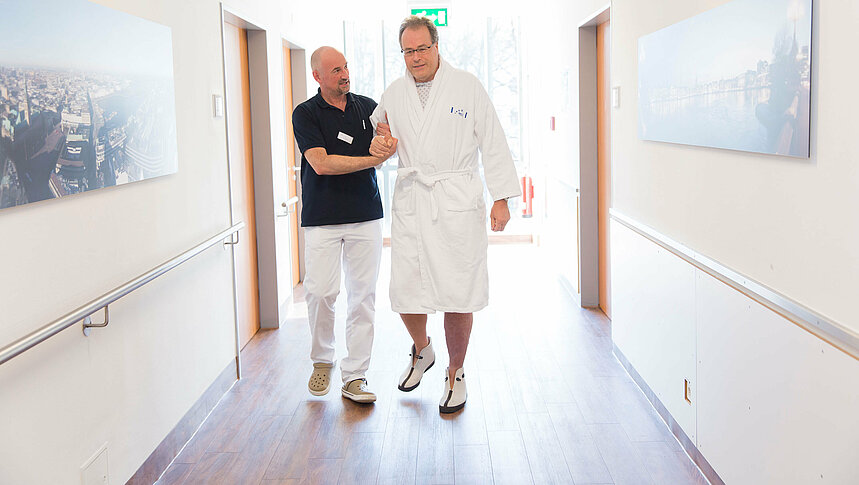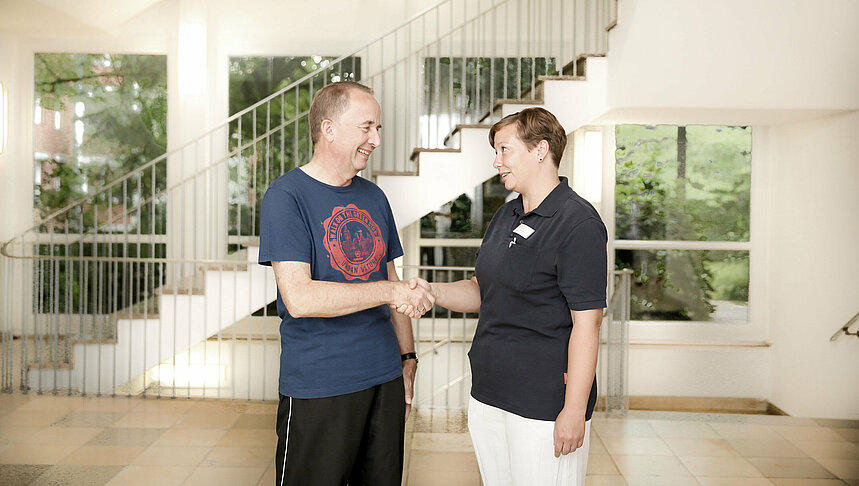Day of the surgery
- We will wake you early enough for you to shower and get ready.
- On the morning of your operation, you will undergo a SPECT-CT scan in the Nuclear Medicine department before the procedure.
- Once you return to the ward, we will ask you to put on your gown for surgery. The nursing staff will provide everything you need. After that, you will be taken to the operating room.
- You will have to fast for several hours before the operation, so you will not be able to eat, drink or smoke. The anaesthetists and nurses will inform you of the exact times of your fast. Please adhere to this schedule precisely as we cannot perform surgery if you have not fasted for long enough before the scheduled start of anaesthesia.
- You will only leave the post-anaesthesia recovery room once you are fully alert again. It might be the evening before you return to the ward.
- You can drink fluids after the surgery. Please speak to the team on your ward about when you can and wish to eat. You will be given infusions over the course of the day via an IV line to make sure your body gets the fluids it needs.
- We will take a blood sample in the evening.
- Due to the anaesthetic, it is likely that you will not sleep particularly well following the procedure. You will also be given pain relief via infusion or injection to treat any wound pain you experience. Please let the nursing staff know immediately if the pain relief you have been given is not sufficient.
- It is sometimes necessary to place a surgical drain during the procedure. If a surgical drain has been placed to remove wound secretions, this will usually be removed after two or three days, or in rare cases slightly longer.
- You will also have a catheter in place in your bladder to remove urine. The urine will flow into a bag beside your bed. In some cases, the catheter can cause some abnormal sensations, such as the feeling of constantly needing to pass urine.



